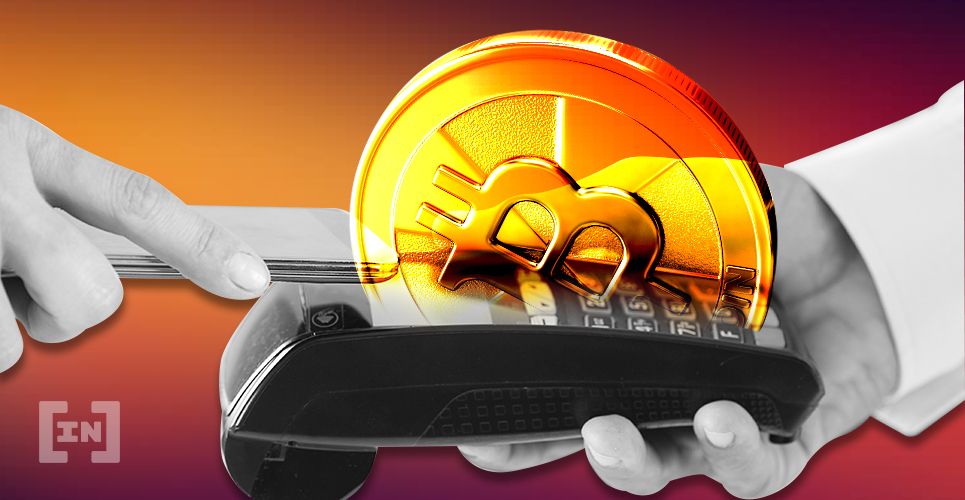When you look at the title for this op-ed, your first reaction might be to shrug and say: “No they don’t.” Indeed, how many times have we seen big names getting excited about crypto projects just to drop them along the way? After all, even Libra lost the support of Visa, MasterCard, and Vodafone, and now seems more dead than alive.
And yet, there are less obvious reasons why crypto can be good for big business. It has nothing to do with tracking supply chains in agriculture or selling tokenized mortgages. We are very, very far from blockchain adoption on that scale.
But there are at least three kinds of crypto services that can solve real big business problems and won’t land a company in hot water with regulators. The latter is key; any successful collaboration between fintech and large companies probably shouldn’t involve Bitcoin (BTC) or crypto trading too directly.
C2B payments
There may be as many as 100 million crypto users out there and a lot of them actively seek out places where they can pay in Bitcoin. Winning over a share of this tech-focused, forward-thinking audience is tempting in itself. Moreover, for many markets, crypto can be the only feasible C2B payment option: Western payment systems like Stripe don’t work well outside of North America and Europe. So what’s stopping serious companies from accepting digital currency on a large scale? Judging from our own experience as a crypto payment processor, the key issue is security. The bigger your business, the less you want to keep Bitcoin on your books. Luckily, there are ways to accept payments in crypto without ever touching any Bitcoins. A merchant can request a fiat settlement in USD or EUR and get the money straight into their bank account. Stumbling block: awareness. Once companies realize that they don’t have to hold any Bitcoin, the number of businesses that accept crypto will grow rapidly. The volume passing through our system more than doubles every year.Cross-border transfers
An interesting fact: in the overall crypto payment volume processed by our platform, fast and cheap coins like XRP and XML account for a tiny share. Up to 99 per cent of all payments are made in BTC and USDT, despite the high fees. Regular users don’t seem to be interested in saving money. But when it comes to large companies with their serious cross-border B2B volumes, they sure know how to count costs. When you have the two parties’ banks, plus two correspondent banks, fees mount quickly. New research suggests that international B2B payments will grow from $27 trillion in 2020 to $35 trillion by 2022 – a 30 per cent increase in just two years. With the average fee amounting to 7 per cent, $35 trillion in payments would mean almost $2.5 trillion in fees. If there is a way for businesses to save 70 per cent or more on cross-border fees with the distributed ledger technology, they will take it – if not right now, then fairly soon. But once again, they will be much more interested in solutions that are about “blockchain,” not “crypto.” There are already two fully operational solutions of this type — RippleNet and Visa B2B Connect. Ripple is geared at financial institutions, while Visa seems to aim at B2B payments in general. The idea is the same. Connect two banks directly, without the use of correspondent banks and SWIFT. The implementation, however, is a bit different. Visa B2B Connect still requires a day or two to settle funds, while the Ripple system is almost instant. Interestingly, SWIFT itself has joined the race with its SWIFT gpi (global payment innovations). The gpi can’t do instant settlements, but at 5 minutes to 24 hours, it’s still faster than Visa’s solution. For a big business, the choice between Ripple and Visa is all about what one values more — time and money or the comfort of a well-known name. Many companies will probably pick B2B Connect simply because it’s Visa, even if it’s slower. Stumbling block: non-blockchain solutions like SWIFT gpi. Given how conservative large companies can be, if they can achieve the same result without blockchain, they probably will.DeFi loans
DeFi is now an epitome of all that’s chaotic, visionary, and dubious in crypto. The majority of borrowers on DeFi lending protocols are margin traders with a hungry appetite for risk. So why would big companies want to use this kind of service? The answer is cheap and fast credit. After getting verified, the borrower gets access to a line of credit in stablecoins without having to supply collateral. If needed, the stablecoins would be automatically converted into fiat USD through a crypto-fiat on-off ramp. The interest rate will be higher than your average DeFi lending rates, but it will still be lower than on the traditional credit market. Plus, the whole process of taking out a loan will take minutes if not seconds, without any paperwork to boot. Stumbling block: blockchain-based contracts. An institutional borrower would need to sign a digital contract with the lender (represented by a DeFi platform), but for now, contract platforms like OpenLaw remain experimental.Closing thoughts: talk about blockchain, not crypto
Big businesses may still be afraid of all things crypto because they associate them with Bitcoin. The task for fintech startups at this point is to break this unhealthy association. We need to show traditional, fiat-based companies how they can benefit from blockchain technology without ever touching cryptocurrencies: through cross-border transfers, C2B payments, and loans. And paradoxically, the less we use the word “crypto,” the faster large companies will embrace our solutions. NOTE: The views expressed here are those of the author’s and do not necessarily represent or reflect the views of BeInCrypto.
Top crypto platforms in the US
Disclaimer
In compliance with the Trust Project guidelines, this opinion article presents the author’s perspective and may not necessarily reflect the views of BeInCrypto. BeInCrypto remains committed to transparent reporting and upholding the highest standards of journalism. Readers are advised to verify information independently and consult with a professional before making decisions based on this content. Please note that our Terms and Conditions, Privacy Policy, and Disclaimers have been updated.

Max Krupyshev
Max has been in Bitcoin since 2013. He is the founder of Satoshi Square and Bitcoin Foundation Ukraine. Being a member of the Blockchain Working Group, an organization lobbying crypto in governments of different countries, he also participates in the annual Europol Cryptocurrency Conference. Having vast experience in working with Cex.io and Ghash.io, Max leads one of the leading cryptocurrency payment services, Cryptoprocessing.com.
Max has been in Bitcoin since 2013. He is the founder of Satoshi Square and Bitcoin Foundation Ukraine. Being a member of the Blockchain Working Group, an organization lobbying crypto in governments of different countries, he also participates in the annual Europol Cryptocurrency Conference. Having vast experience in working with Cex.io and Ghash.io, Max leads one of the leading cryptocurrency payment services, Cryptoprocessing.com.
READ FULL BIO
Sponsored
Sponsored

